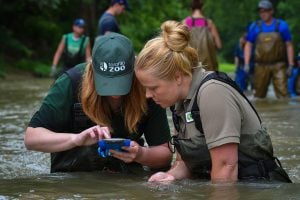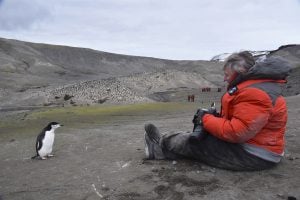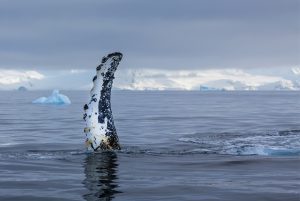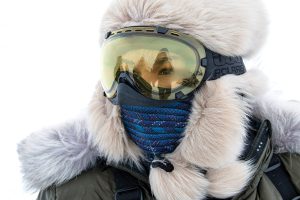
Environment
When it comes to conservation research, are zoos and aquariums doing enough?
A new study finds zoos and aquariums in Canada are publishing more peer-reviewed research, but there is still more to be done
- 1471 words
- 6 minutes
This article is over 5 years old and may contain outdated information.
Science & Tech

Canadian scientists have received a $1.7 million investment from the Canadian Space Agency that will allow them to take part in an international study in Antarctica that is looking at how to reduce health risks for astronauts on long-term missions.
Peter Suedfled, a professor of psychology at the University of British Columbia who studies the effects of challenging and stressful environments and experiences on psychological processes and behaviour and is involved in the study, spoke to Canadian Geographic about the project.
Why is the study taking place in Antarctica?
Antarctic stations are often considered and studied as analogues of spaceflight, because the two environments have significant similarities with psychological implications.
How will you study and evaluate Antarctic conditions?
Winter-over personnel at two Antarctic stations will be recorded in three situations: reading a set story once a week, with everyone reading the same story each time; keeping an oral diary of the previous week — events, feelings, thoughts, memories, dreams, et cetera; and a dinner-table conversation once a week or every two weeks. This last one didn’t happen due to equipment breakdown.
How will the collected data be studied?
The texts will be transcribed and, where necessary, translated into English. My European colleagues will be analyzing technical aspects such as voice frequency, amplitude, speech rate and spectral analysis. I will be analyzing the content of the diaries and deriving quantitative measures of positive and negative moods, problem-solving strategies and interpersonal relations.
What do you hope to learn from the study? This will be the first such quantitative longitudinal study of winter-over personnel combining technical and psychological analysis. We will get a new understanding of psychological processes and changes among long-duration personnel in isolated, confined environments. We also hope to develop a non-invasive measure of stress.
How could the study help the Canadian space program and other fields?
Stress and how astronauts react to it are crucial aspects of successful spaceflight. Existing measures are subjective and susceptible to self-presentation motives, like self-reports, or invasive, like blood sampling. If our alternative works, space agencies and other organizations deploying personnel on long-duration missions for the military or resource extraction will be able to predict and take steps to avoid or ameliorate stressful phases of the mission, and also to design environments to make them as stress-reducing as possible. The same may be true of organizations that run environments that have some similarities to isolated confined environments, such as group homes for the elderly.
Are you passionate about Canadian geography?
You can support Canadian Geographic in 3 ways:

Environment
A new study finds zoos and aquariums in Canada are publishing more peer-reviewed research, but there is still more to be done

Science & Tech
As a biologist and photographer, I had long hoped to visit Antarctica — but this journey was much more than a travel dream fulfilled

Environment
Ten years after the release of her seminal book Sea Sick, Alanna Mitchell again plumbs the depths of the latest research on the health of the world’s oceans — and comes up gasping

Science & Tech
The Canadian High Arctic Research Station is set to open in Cambridge Bay, Nunavut, later this year. How will it affect our understanding and appreciation of the North and the rapid change occurring there?